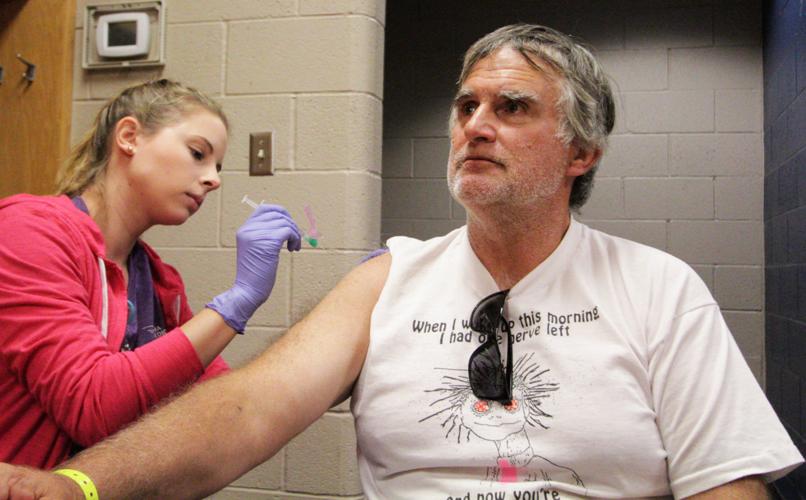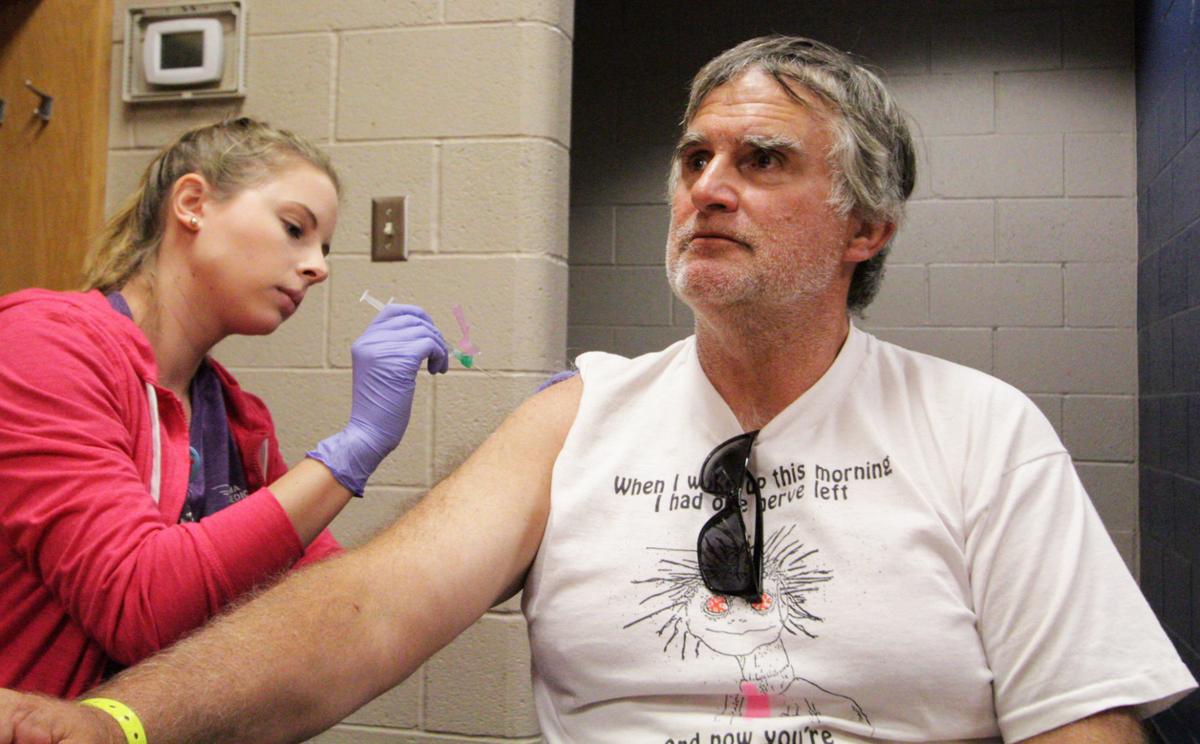A child younger than 2 has died of flu-related causes in Pima County, becoming Arizona’s first pediatric flu death this season.
Arizona’s flu season, which began in October, has been remarkably mild compared with other parts of the country. But the child’s death underscores the devastating consequences influenza can have in vulnerable populations, including children and the elderly, county health officials said Wednesday.
Health officials are urging local residents to get a flu vaccine if they have not done so already.
There have been 15 pediatric flu deaths nationally this flu season, data from the Centers for Disease Control and Prevention show. Last flu season there were 89. Children who are otherwise perfectly healthy can die from influenza — not just children with underlying health conditions or compromised immune systems.
Pima County Health Department Director Dr. Francisco Garcia would not release detailed information about the child who died, including gender, specific age and whether or not the child received a flu vaccine. He did say that the cause of death was confirmed Tuesday and that the child died in a hospital because of a systemic bacterial infection complicated by the flu virus.
It’s Not too late
to get vaccinated
Arizona typically has between one and five pediatric flu-related deaths per season. In the 2015-16 flu season, there were four pediatric flu-related deaths, state records show.
The last time Pima County had a pediatric flu death was 2014. The county and state health departments report only pediatric flu deaths, not flu deaths in adults.
“Unfortunately a small child who had flu and other complicating issues ended up succumbing to this,” Garcia said Wednesday. “Although we are probably in the last four weeks of our flu season, we’re still in it. And it’s not too late to vaccinate.”
It takes about two weeks for the vaccine to take effect. The flu season usually peaks between December and March.
Getting vaccinated is not just about oneself, Garcia said — it is a social contract.
“Our very youngest children — infants that are not yet of vaccination age — need to be surrounded, be cocooned, with caretakers that are vaccinated,” he said.
“When you are getting vaccinated you are not just getting yourself vaccinated, you are really protecting the people around you.”
Since infants younger than 6 months cannot be vaccinated, they are particularly vulnerable.
Some at higher risk
“When you and I get the flu, our body fights it off very efficiently,” Garcia said. “When a very young child or immuno-suppressed individual gets the flu, it makes them vulnerable to other things — and other things that might not be a big deal to the rest of us could kill someone who is vulnerable like that.”
Other high-risk groups include people with chronic medical conditions such as asthma, diabetes, heart disease or neurological conditions; pregnant women; children under age 5; and adults older than 65.
Hospitals are increasingly requiring their employees to get flu shots, and the federal government is encouraging all health-care workers to get vaccinated.
The CDC recommends that everyone 6 months and older get the flu vaccine.
Flu viruses spread from person to person through coughing, sneezing, touching something with the flu virus on it, and in some cases through the air.
Quiet season
While the flu shot is the best way to prevent the flu, there are other important steps to prevent getting sick or spreading germs.
“If you are sick, stay home. If you are coughing, cover your cough,” Garcia said. “Make sure you are washing your hands.”
As of Jan. 27, flu cases in Arizona were down 19 percent compared with this time last year. Statewide, there have been 2,138 confirmed flu cases, including 232 in Pima County.
“I realize there has been a lot of chatter on the national front about how bad the flu is in other states, but as far as Pima County is concerned, it has been a relatively quiet season for us,” Garcia said. “That’s one of the testaments to the efforts that we have made to get people vaccinated.”







